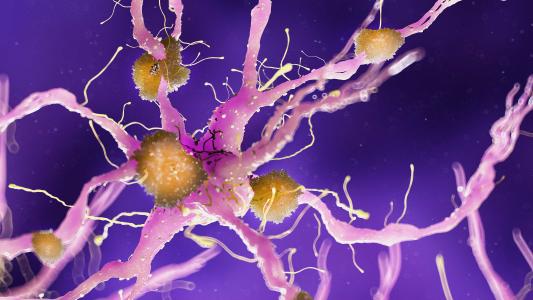Your gut isn’t just home to the contents of your last meal — right now, trillions of microbes are living in your gastrointestinal (GI) tract, and these tiny squatters (known collectively as your “gut microbiome”) play an important role in your health.
These viruses, bacteria, and other germs help your body digest food, battle infections, and produce vitamins. They’ve also been linked to things that seemingly have little to do with your digestive system, such as cognition, mental health, and cancer protection.
Researchers are still trying to understand the connection between the gut microbiome and health, but collecting samples for analysis has proven difficult.
They can look at the bacteria in fecal matter, but that tells them about the bacteria in the intestines, and your gut microbiome varies along the GI tract. Biopsies, meanwhile, can collect samples from other areas, but they are highly invasive.
Now, researchers from Purdue University have developed a cheap smart pill that can be programmed to collect gut microbiome samples from anywhere along the GI tract — all a patient has to do is swallow it and wait.
Sampling the Gut Microbiome
The prototype of Purdue’s smart pill comprises four parts: container, lid, hydrogel, and plunger.
The container is 3D printed out of nontoxic resin and looks like a tiny mason jar. It’s covered by a lid crafted out of a polymer designed to dissolve when it encounters a certain acidity level.
This is what makes the pill programmable — acidity levels vary along the GI tract, so researchers would just match the level at which the lid dissolves with the level of the area they want to sample, opening the smart pill at the right spot for collection.
Inside the container is a hydrogel. After the lid dissolves and gut microbiome samples enter the container, this hydrogel swells. That pushes the fourth part of the smart pill — a polymer plunger within the container — to the end of the smart pill, replacing the lid and trapping the bacteria.
Researchers then just wait for the smart pill to exit the body in a person’s fecal matter for collection and analysis.
Developing the Smart Pill
The researchers demonstrated a prototype of their smart pill in a study published in the journal RSC Advances, using a solution designed to mimic the human gut.
In those experiments, the smart pill successfully collected samples of common gut bacteria. It also protected the samples in extreme environments similar to those found along the GI tract.
The Purdue researchers are now testing their smart pill in pigs, whose GI tract is similar to humans. If testing goes well, the smart pill could eventually help researchers unravel some of the mystery between the gut microbiome and human health.
With a cost of just one dollar per capsule, the smart pill could ultimately prove useful in a healthcare setting, too, giving doctors a cheap way to collect a sample of their patient’s unique gut microbiome to better understand their health.
We’d love to hear from you! If you have a comment about this article or if you have a tip for a future Freethink story, please email us at [email protected].






